Unity's U-Turn: How PC Gamers Saved Indie Devs (For Now) For a brief, terrifying moment, the future of PC indie gaming hung in the balance.
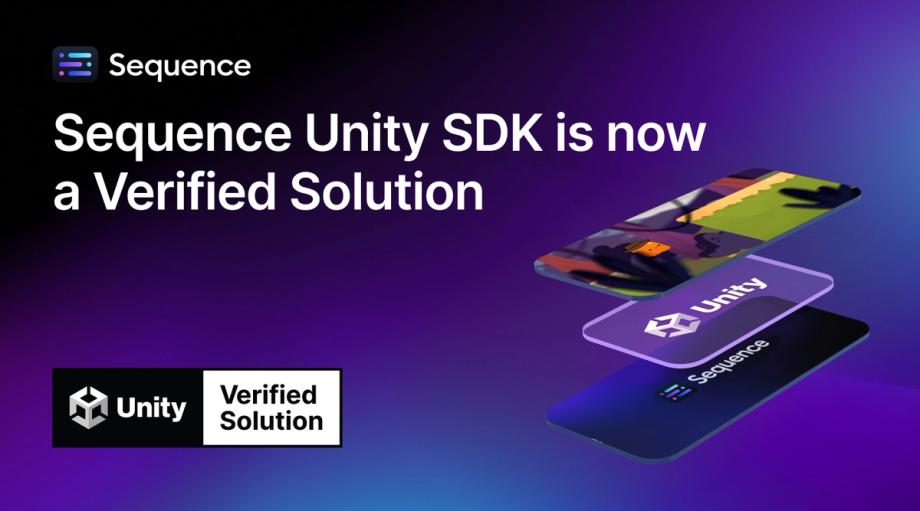
For a brief, terrifying moment, the future of PC indie gaming hung in the balance. Unity, the engine powering countless titles on Steam and Itch.io, announced a Runtime Fee policy that threatened to cripple smaller studios. The PC gaming community, fueled by outrage and a deep love for the often-quirky, always-creative world of indie games, rose up. This is the story of that revolt, Unity's subsequent apology and backtrack, and what it all means for the future of PC gaming.
The Unity Asset Store: A lifeline for many indie developers looking to quickly prototype and build out their games.
The Runtime Fee: A Nightmare Scenario
The initial proposal was simple, yet devastating: Unity would charge developers a fee for each install of their game, after certain revenue and install thresholds were met. While seemingly targeted at larger studios, the devil was in the details. The potential for retroactive fees, the ambiguity around how installs would be tracked, and the lack of clarity on free-to-play games sent shockwaves through the indie community. Imagine a small team releasing a passion project on Steam, only to be hit with unexpected fees based on a system they couldn't control. This wasn’t just about profits; it was about survival.
Developers took to social media to voice their concerns. "This is unsustainable for so many of us," tweeted @IndieDevDan, a sentiment echoed by countless others using the hashtag #UnityIsDead. Reddit threads exploded with calculations, worst-case scenarios, and discussions about alternative engines. For those building narrative-driven adventure games, retro-style platformers, and experimental art games on platforms like Steam and Itch.io, the very foundation of their business models was being shaken. The potential consequences were dire: projects shelved, games pulled from digital storefronts, and a chilling effect on indie creativity.
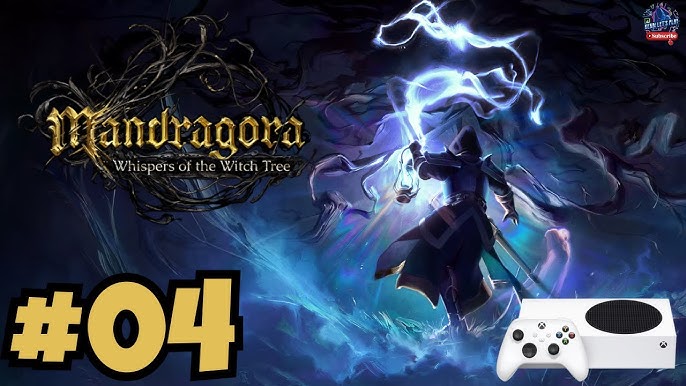
The initial backlash on Twitter, captured under the hashtag #UnityIsDead, reflected the deep concerns of the indie development community.
Unity vs. Unreal: Different Philosophies, Different Impacts
The contrast with Epic Games' approach to Unreal Engine couldn't be starker. Unreal Engine offers free access, with a 5% royalty only after a game earns over $1 million USD in lifetime gross revenue. This model fosters growth and rewards success. Unity's initial proposal, on the other hand, seemed to penalize even modest success, creating a climate of fear and uncertainty.
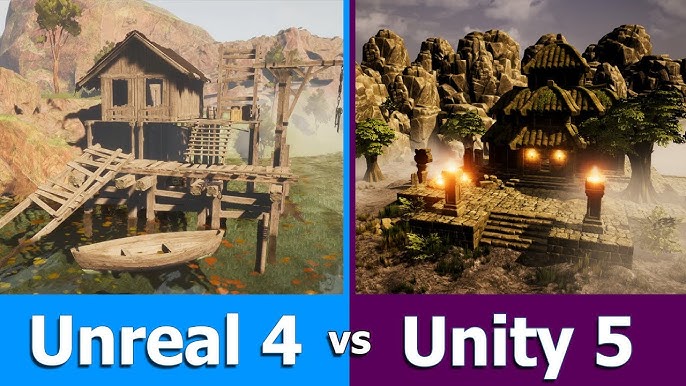
A comparison of Unity's initial Runtime Fee proposal and Unreal Engine's royalty model highlights the stark difference in their approach to indie developers.
The problem wasn't just the cost; it was the potential for it to disproportionately impact smaller developers relying on ad revenue (e.g., free-to-play games with in-app purchases) or post-launch sales and long-tail revenue to sustain their businesses and support their families. Many PC indie games rely on a steady trickle of sales over months or even years to recoup development costs. The Runtime Fee threatened to turn that trickle into a torrent of unexpected expenses.
Riccitiello's Apology and the Backtrack
The outcry was heard. On September 22, 2023, Unity issued an apology, acknowledging that the initial announcement "caused confusion and angst." In an apology video, CEO John Riccitiello stated, "...we heard you. We apologize." (You can find transcripts and summaries of the apology online.) Shortly thereafter, revised terms were announced, attempting to address some of the community's concerns. These revisions included raising the revenue and install thresholds, clarifying the install tracking process, and stating that the fee would only apply to games using the most recent version of Unity.
Interview: Sarah Klein of Owl Creek Games
To understand the real-world impact of this controversy, we spoke with Sarah Klein, a lead designer at Owl Creek Games, a two-person studio specializing in narrative-driven adventure games on PC.
XenGamer: Sarah, when you first heard about Unity's proposed Runtime Fee changes, what was your immediate reaction?
Sarah: Panic. Pure, unadulterated panic. We immediately started running numbers, trying to figure out how it would impact 'Whispers of the Old Growth' and 'Lakeside Manor Mystery.' It wasn't just future projects; it was current projects. We were looking at potentially pulling our games from Steam entirely. Patching and updating our existing games, something we do regularly to improve the player experience, would suddenly become a liability. Every new install after an update could cost us money.
XenGamer: You mentioned considering pulling your games from Steam. What factors led you to that decision, and what were the potential consequences for Owl Creek Games?
Sarah: The uncertainty was the biggest factor. We couldn't accurately predict how many installs we'd get after an update, and the thought of being hit with unexpected fees was terrifying. We calculated potential revenue losses, and it was grim. We're a two-person team; we don't have a massive marketing budget. Our games rely on word-of-mouth and Steam's algorithms. If we pulled them, we'd lose that momentum, potentially killing our studio.
XenGamer: How did the community response and the eventual backtrack by Unity affect your outlook on the situation?
Sarah: The #UnityIsDead hashtag was powerful. It showed Unity that we weren't going to take this lying down. The backtrack was a relief, but it also left us feeling…hesitant. We're still not 100% confident. To regain our trust, Unity needs to be transparent, communicate clearly, and involve developers in future policy decisions. We need guarantees that this won't happen again.
XenGamer: Compared to other engines, like Unreal Engine, what are the specific benefits and drawbacks of using Unity for your type of games?
Sarah: Unity is incredibly accessible. The asset store is a game-changer, allowing us to quickly prototype and build environments. The community support is fantastic. Unreal Engine is powerful, but it has a steeper learning curve and can be overkill for our type of narrative-focused games. This controversy definitely made us reconsider our choice of engine. We're exploring other options, just in case.

"Whispers of the Old Growth," a narrative-driven adventure game from Owl Creek Games.
XenGamer: What is your advice to Unity on how they should approach developer relations moving forward?
Sarah: Listen to your developers! Engage in open communication. Be transparent about your plans. And most importantly, remember that indie developers are the lifeblood of your ecosystem. We're not just numbers on a spreadsheet; we're passionate creators who pour our hearts and souls into our games.
The Aftermath: Damage Done, Lessons Learned?
The Unity Runtime Fee controversy has undoubtedly left a lasting scar. While the backtrack has averted immediate disaster, the damage to Unity's reputation is undeniable.
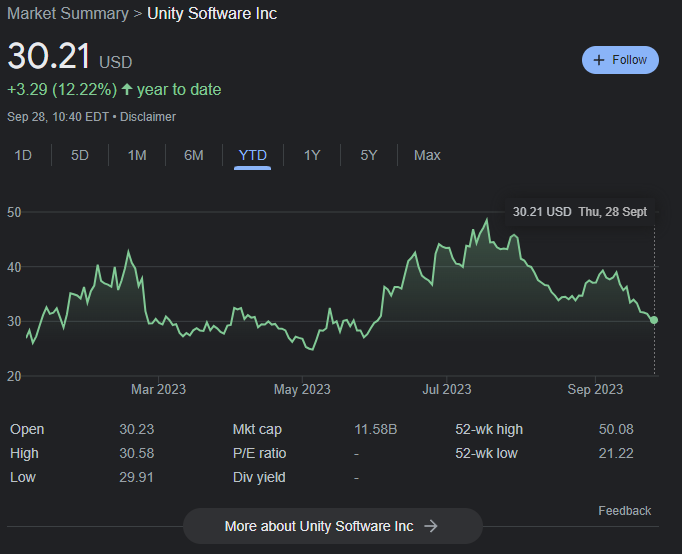
A fictionalized protest outside Unity's headquarters, representing the frustration and anger of the indie game development community.
It remains to be seen whether Unity can fully regain the trust of the indie community. Actions speak louder than words, and Unity will need to demonstrate a long-term commitment to supporting developers of all sizes. This includes improved communication, transparent policy changes, and a genuine understanding of the unique challenges faced by indie studios.

The impact of the Runtime Fee controversy on Unity's stock performance highlights the financial consequences of alienating its developer base.
The PC gaming community has proven its power to influence industry decisions. By speaking out, organizing, and demanding change, PC gamers helped save indie devs, at least for now. The future of PC indie gaming depends on continued vigilance, open dialogue, and a willingness to support the creators who bring us these unique and memorable experiences.
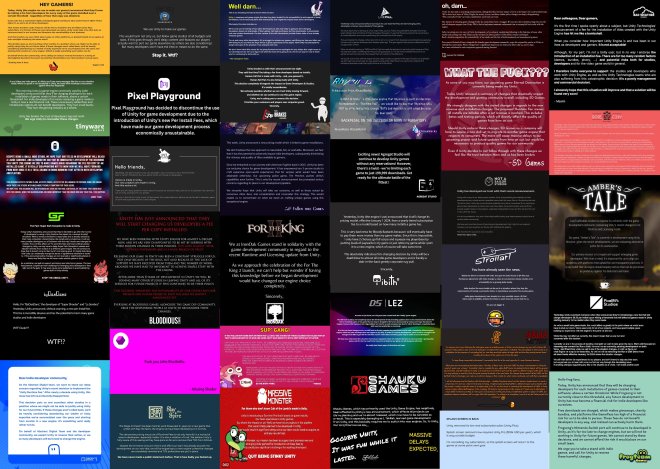
The contrast between a vibrant indie game community and the potential loss of creativity due to detrimental policies underscores the importance of supporting indie developers.
So, what's next? Keep supporting indie game developers like Owl Creek Games. Engage in community discussions on platforms like Reddit and Discord. And let your voice be heard. The future of PC gaming depends on it. Because if we, the PC gaming community, are truly passionate about the games we love, we need to show that we will protect the people who make them.